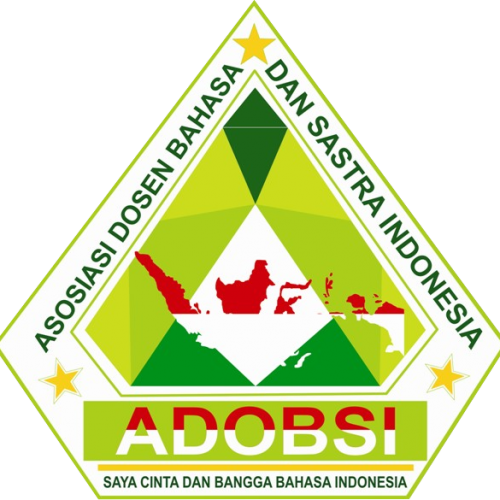UTILIZING ARTIFICIAL INTELLIGENCE TO EVALUATE STUDENTS’ COMPETENCY IN WRITING SIMPLE PAST TENSE
DOI:
https://doi.org/10.59672/stilistika.v12i2.3691Keywords:
Keywords: Writing, artificial Inteliggence, AssesmentAbstract
Abstract
The purpose of this study is to determine the application of artificial intelligence (Copilot) in evaluating student writing in writing simple past tense. The method of this research is qualitative. The data collection technique was carried out by collecting 5 student writings randomly. The data analysis technique was carried out with qualitative descriptive method. The results showed that the copilot was able to create a rubric used to evaluate students' writing in writing simple past tense. This rubric consists of several parts, namely content development, organization, grammar and mechanics, usage and style. The results showed that copilots were able to evaluate well, such as being able to identify topic coverage, relevance, paragraph structure, transitions, sentence structure, spelling and punctuation, verb tense consistency and word choice. The feedback provided by Copilot is able to describe writing errors well and in detail. Teachers are advised to utilize artificial intelligence in the learning process, especially in evaluating student writing. Teachers can explore the use of artificial intelligence and its capabilities in language learning so that they can work more easily and effectively. Teachers can integrate AI tools such as Copilot into the assessment process, particularly grammar and tenses. The developer of AI should continuously refine AI capability to give more sophisticated feedback on complex transitions and sentence structures.
Keywords: Writing, artificial Inteliggence, Assesment
Downloads
References
Abdul Rahman, N. A., Zulkornain, L. H., & Hamzah, N. H. (2022). Exploring Artificial Intelligence using Automated Writing Evaluation for Writing Skills. Environment-Behaviour Proceedings Journal, 7(SI9), 547–553. https://doi.org/10.21834/ebpj.v7isi9.4304
Chen, L., Chen, P., & Lin, Z. (2020). Artificial Intelligence in Education: A Review. IEEE Access, 8, 75264–75278. https://doi.org/10.1109/ACCESS.2020.2988510
Fitria, T. N. (2020). Error Analysis Found in Students’ Writing Composition in Simple Past Tense of Recount Text. ENGLISH FRANCA : Academic Journal of English Language and Education, 4(2), 141. https://doi.org/10.29240/ef.v4i2.1154
Marzuki, Widiati, U., Rusdin, D., Darwin, & Indrawati, I. (2023). The impact of AI writing tools on the content and organization of students’ writing: EFL teachers’ perspective. Cogent Education, 10(2). https://doi.org/10.1080/2331186X.2023.2236469
Nazari, N., Shabbir, M. S., & Setiawan, R. (2021). Application of Artificial Intelligence powered digital writing assistant in higher education: randomized controlled trial. Heliyon, 7(5). https://doi.org/10.1016/j.heliyon.2021.e07014
Pokrivcakova, S. (2019). Preparing teachers for the application of AI-powered technologies in foreign language education. Journal of Language and Cultural Education, 7(3), 135–153. https://doi.org/10.2478/jolace-2019-0025
Pugalenthi, R., Prabhu Chakkaravarthy, A., Ramya, J., Babu, S., & Rasika Krishnan, R. (2021). Artificial learning companionusing machine learning and natural language processing. International Journal of Speech Technology, 24(3), 553–560. https://doi.org/10.1007/s10772-020-09773-0
Shermis, M. D., Burstein, J., Higgins, D., & Zechner, K. (2009). Automated Essay Scoring: Writing Assessment and Instruction. International Encyclopedia of Education, Third Edition, 20–26. https://doi.org/10.1016/B978-0-08-044894-7.00233-5
Wu, T., & Yu, Z. (2023). Bibliometrically and systematically analyzing automated writing evaluation for English learning. Forum for Linguistic Studies, 5(3), 1–18. https://doi.org/10.59400/fls.v5i3.1907
Zawacki-Richter, O., Marín, V. I., Bond, M., & Gouverneur, F. (2019). Systematic review of research on artificial intelligence applications in higher education – where are the educators? International Journal of Educational Technology in Higher Education, 16(1). https://doi.org/10.1186/s41239-019-0171-0
Downloads
Published
How to Cite
Issue
Section
License
Copyright (c) 2024 Stilistika : Jurnal Pendidikan Bahasa dan Seni

This work is licensed under a Creative Commons Attribution-NonCommercial-ShareAlike 4.0 International License.
Hak cipta mencakup hak eksklusif untuk mereproduksi dan mengirimkan artikel ini dalam semua bentuk dan media, termasuk mencetak ulang, memotret, mikrofilm dan reproduksi serupa lainnya, serta terjemahannya. Reproduksi dari bagian manapun dari jurnal ini, penyimpanannya di database dan transmisinya dengan bentuk atau media apa pun, seperti salinan elektronik, elektrostatik dan mekanis, fotokopi, rekaman, media magnetik, dan lain-lain, akan diizinkan hanya dengan izin tertulis dari penerbit jurnal.

















